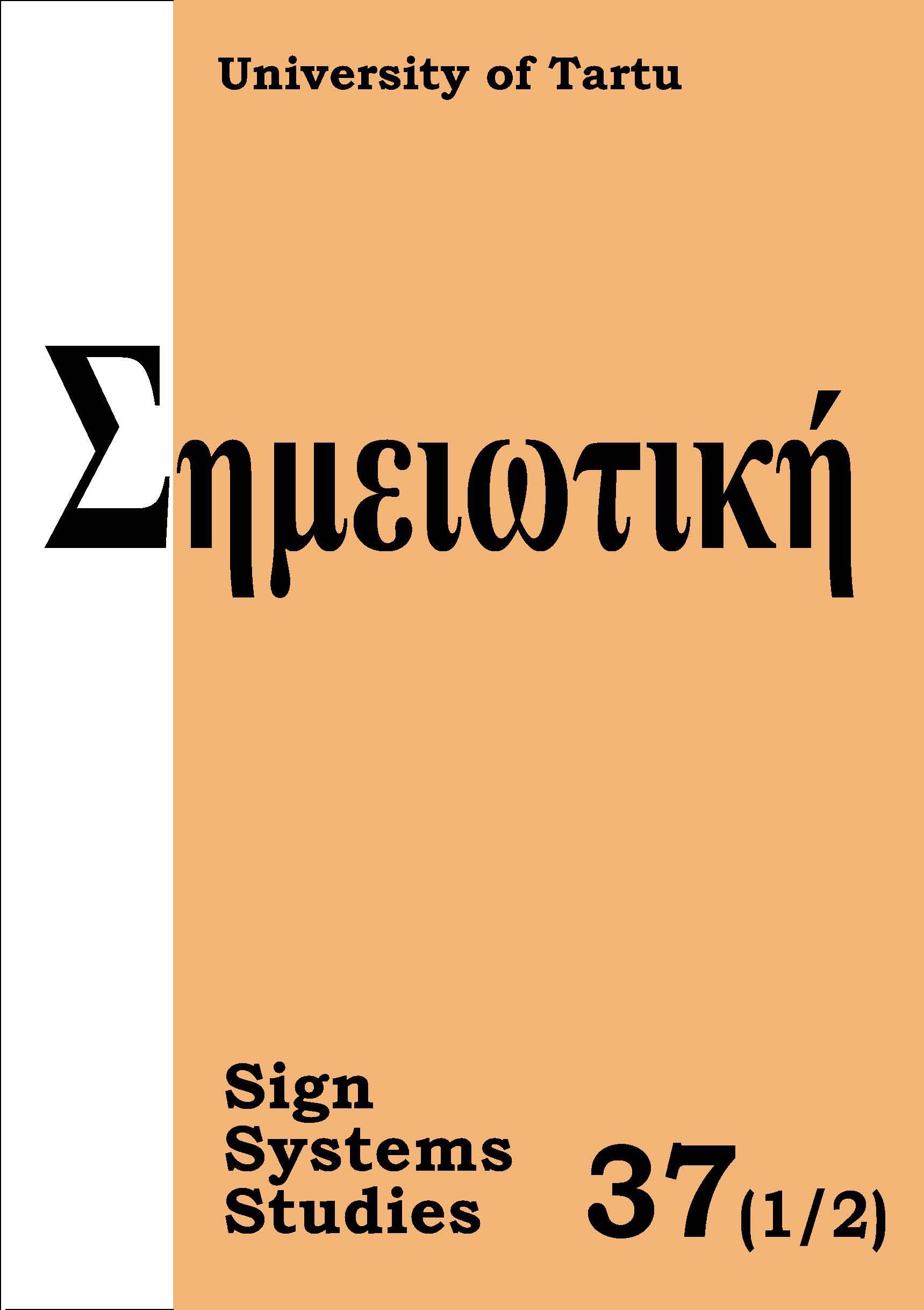Opposition theory and the interconnectedness of language, culture, and cognition
DOI:
https://doi.org/10.12697/SSS.2009.37.1-2.02Abstract
The theory of opposition has always been viewed as the founding principle of structuralism within contemporary linguistics and semiotics. As an analytical technique, it has remained a staple within these disciplines, where it continues to be used as a means for identifying meaningful cues in the physical form of signs. However, as a theory of conceptual structure it was largely abandoned under the weight of post-structuralism starting in the 1960s — the exception to this counter trend being the work of the Tartu School of semiotics. This essay revisits opposition theory not only as a viable theory for understanding conceptual structure, but also as a powerful technique for establishing the interconnectedness of language, culture, and cognition.Downloads
Download data is not yet available.
Downloads
Published
2009-12-15
How to Cite
Danesi, M. (2009). Opposition theory and the interconnectedness of language, culture, and cognition. Sign Systems Studies, 37(1/2), 11–42. https://doi.org/10.12697/SSS.2009.37.1-2.02
Issue
Section
Articles


